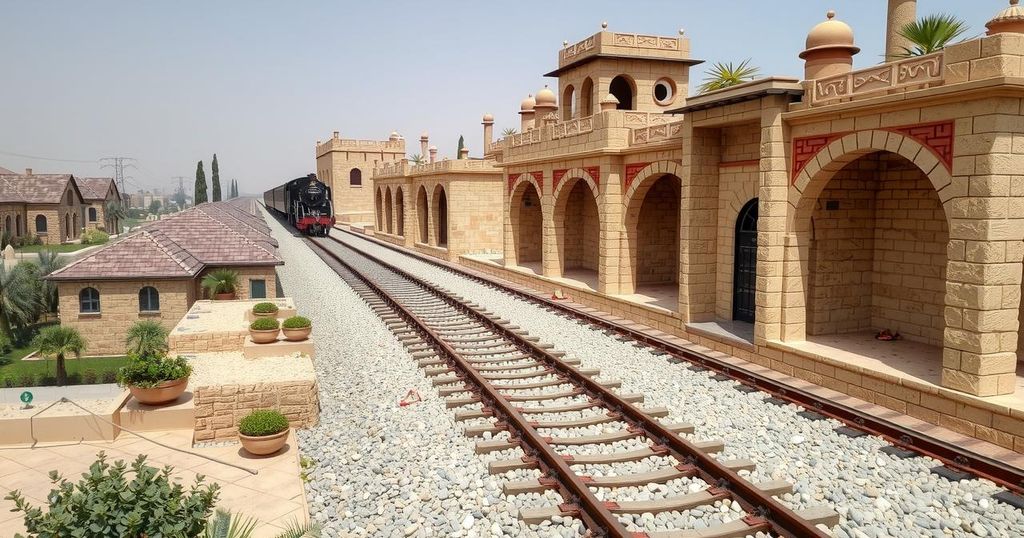Turkey’s Initiative to Restore Historic Hejaz Railway in Syria

Turkey intends to restore portions of the Hejaz Railway in Syria, aiming to reconnect railway systems to Damascus and assist in rebuilding infrastructure after years of civil conflict. The historical significance of the railway dates back to the Ottoman Empire, with it originally intended to facilitate pilgrimages and maintain control over distant provinces. The restoration could promote regional connectivity and infrastructure stability.
Turkey has announced plans to restore sections of the historic Hejaz Railway in Syria, with the intention of reestablishing rail connectivity between Turkey and Damascus. Turkish Transportation Minister Abdulkadir Uraloglu emphasized the urgency of assessing the situation and initiating restoration efforts during a meeting with journalists. He acknowledged the railway’s past operational status and expressed concerns over potential challenges posed by infrastructure deterioration and security issues in the region. Turbulent events, including the civil war in Syria, have hindered normal operations along the line since its conception.
The Hejaz Railway, conceived by Sultan Abdulhamid II of the Ottoman Empire in 1900, was designed to connect Istanbul with Mecca, although it ultimately terminated in Medina, approximately 400 kilometers from its intended goal. The construction was largely funded by Muslim donations, albeit some were coerced. Initially aimed at facilitating the historical Hajj pilgrimage and consolidating Ottoman territorial control, the railway faced numerous disruptions, particularly during the Arab Revolt, and halted operations during World War I. Despite its historical significance, the railway’s potential revival could signify a step towards improved regional infrastructure and stability.
In a recent cabinet meeting, President Recep Tayyip Erdogan tasked ministers with identifying infrastructural deficiencies in Syria to assist the newly formed caretaker government in maintaining essential services, particularly in light of the ongoing civil unrest. The restoration of the Hejaz Railway would not only revitalize a significant piece of history, but may also bolster economic ties and promote connectivity within the region.
The Hejaz Railway represents a significant historical achievement of the Ottoman Empire, designed to facilitate the Hajj pilgrimage and enhance control over peripheral provinces. Construction commenced quickly in the early 1900s, functioning until it was interrupted by various conflicts, culminating in World War I. The railway served multiple roles, including transportation for military forces. Its partial restoration by Turkey could help revamp regional transportation networks and restore historical connections, following years of civil strife.
In summary, Turkey’s initiative to restore sections of the Hejaz Railway in Syria marks an important step toward reestablishing transportation links that were historically significant for the region. This restoration effort reflects Ankara’s commitment to aiding Syria’s recovery post-civil war while also reviving a vital piece of infrastructure that previously served to connect religious and historical sites. Furthermore, Turkey’s proactive approach towards enhancing bilateral ties through infrastructure repairs demonstrates a strategic focus on regional stability and cooperation.
Original Source: www.middleeasteye.net







